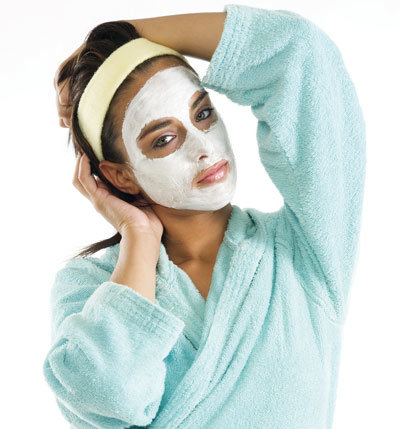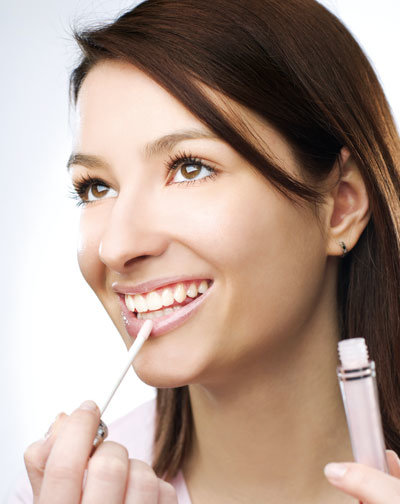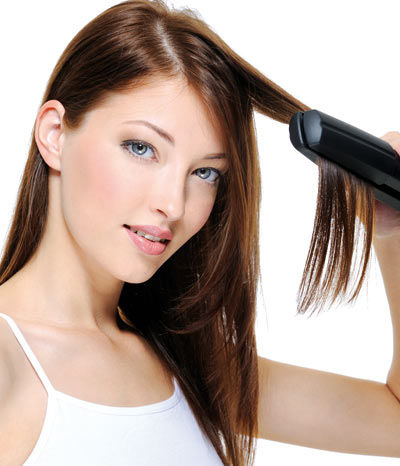There is far too much advice available everywhere on caring for one’s skin. And we usually follow one that appeals most to us or one suggested to us by family and friends, who swear that it helps. However, some of those habits might actually be harming your skin rather than helping it.
Cleaning cuticles
 The cuticle attaches the nail plate to the nail bed. Cutting or digging into the cuticle, [an inherent part of manicures], separates the nail bed from the nail plate. This makes it easy for dirt, bacteria, fungi or viral bodies to enter the nail bed leading to infections, swelling, in-growing and yellow nails. While getting a manicure, inform the therapist to not touch the cuticles.
The cuticle attaches the nail plate to the nail bed. Cutting or digging into the cuticle, [an inherent part of manicures], separates the nail bed from the nail plate. This makes it easy for dirt, bacteria, fungi or viral bodies to enter the nail bed leading to infections, swelling, in-growing and yellow nails. While getting a manicure, inform the therapist to not touch the cuticles.
Nail extensions are another popular rage among women. Long-term use and poorly fitted nails can damage the nail bed and hamper natural nail growth. Fungal and bacterial infections can also occur easily, especially when there is even a minor trauma to the artificial nail.
Getting frequent facials
 Facials are more of a feel good than a skin care routine. The massage and exotic creams simply make you feel pampered without really helping your skin. A study in India concluded that facials actually cause acne breakouts in 80 per cent of people.
Facials are more of a feel good than a skin care routine. The massage and exotic creams simply make you feel pampered without really helping your skin. A study in India concluded that facials actually cause acne breakouts in 80 per cent of people.
Facials temporarily brighten your skin tone as the skin is thoroughly cleansed, but they have no long-term benefits beyond relaxation.
No amount of massage can stimulate collagen and tighten loose skin. On the contrary, the creams can clog pores and stimulate the sebaceous glands, leading to acne/pimples.
Exfoliating your face every day
The skin’s outmost layer protects us from dehydration and external dangers. It contains certain lipids that maintain a protective barrier. The layer also has a collection of water-soluble compounds known as natural moisturising factors [NMF] that absorb water from the atmosphere, combine it with their own water content to keep the skin hydrated despite exposure to sun, pollution and harsh elements. The lipid layer surrounding the skin cells prevent loss of NMF and helps ‘lock’ moisture in the skin.
Exfoliating the skin more than once a week damages the protective layer of the skin, making it sensitive and dry. This leads to flaking, increased susceptibility to rashes and redness as well as premature ageing in the form of fine lines, wrinkles, pigmentation.
Daily scrubbing and exfoliation leads to:
- Patchy areas of dryness
- Loss of suppleness
- Dull dry texture
- Redness and itchiness
- Increased sensitivity
- Inflammatory acne and irritation
- Fine lines and wrinkles
Using loofah or nylon brush every day to remove dirt
In addition to damaging the barrier layer of the skin, scrubbing evokes an inflammatory response of the upper skin layer. This results in the release of substances that alter the activity of immune cells and pigment-producing cells. The skin then produces more melanin [skin colour pigment], and you get a pigmented skin. Pigmentation takes a few months to treat.
If the scrubbing is frequent, the pigment melanin gets deposited in the deeper layers of the skin, worsening the problem, which then becomes difficult to treat.
Cleansing, toning and moisturising
Instead, we should cleanse, moisturise and sun protect. Strong toners are astringents with alcohol in them. Even mild ones, that are supposedly ‘alcohol free’ contain up to 10 per cent alcohol. Cleansing itself alters the skin pH, toning makes it more alkaline leading to dry and sensitive skin. Hence, a toner should only be used to degrease very oily skin. It is not for those with normal to dry skin.
Using natural products on the skin
This becomes a harmful habit if done without any knowledge or consulting a qualified expert. Remember, not everything natural is safe—the common practice of rubbing garlic on acne, for instance, leads to burns and pigmentation of skin. Rubbing the skin with lime to remove a skin tag or a tattoo can burn the skin or cause irritant dermatitis. Massaging the skin with milk cream can block pores and cause white heads if the skin is oily or acne-prone.
Ignoring lip care
 Lips are also part of the skin and need sun protection too. Women can use opaque lipsticks with SPF—they protect lips better than sheer glossy ones. They can also top up a non-glossy lipstick with a glossy one. Men can try transparent lip balm with an SPF.
Lips are also part of the skin and need sun protection too. Women can use opaque lipsticks with SPF—they protect lips better than sheer glossy ones. They can also top up a non-glossy lipstick with a glossy one. Men can try transparent lip balm with an SPF.
Frequently licking lips
Saliva evaporates and dehydrates the lips further, making them drier. Saliva contains acids that help break down food, which irritate dry, chapped lips.
A variation of the habit of licking lips is scrubbing, peeling or biting off skin flakes. Peeling lips makes them bleed, slows the healing process and irritates the skin further. Sometimes, it even causes bacterial or fungal infection.
In those with history of cold sores, chapped lips also expose nerve endings, where the herpes virus lives. This exposure can stimulate the otherwise dormant virus and lead to active herpes infection of the lips.
Ironing hair
 Many women or even men with long hair frequently use a flat iron to straighten hair to make them more manageable. Anything that heats hair or puts tension on the shaft, leads to breakage and can permanently damage cells that foster hair growth, if used recurrently.
Many women or even men with long hair frequently use a flat iron to straighten hair to make them more manageable. Anything that heats hair or puts tension on the shaft, leads to breakage and can permanently damage cells that foster hair growth, if used recurrently.
Hair relaxers used for hair straightening contain lye, sodium hydroxide, and other alkaline products. Lye can cause burns and irritation to the skin and these processes can risk hair breakage and hair loss.
Brazilian blow out treatments are considered as easy solutions for frizzy hair. However, they make hair brittle, causing hair fall. The Brazilian straighteners contain 8 – 10 per cent formaldehyde. Exposure to formaldehyde causes general malaise, runny nose, sore throat, headache, itching, and irritated eyes. It is also a potential carcinogen when used in high concentration and quantities. Hence, make sure that the products used on your hair are approved by Occupational Safety & Health Administration [OSHA].
Skipping sunscreen
Up to 80 per cent of the sun’s UV rays penetrate the clouds to reach us. So, using sunscreen every day is not an option irrespective of where you live and where you are.
Also, another sunscreen-related mistake that we make is to not use it if the make-up has a sun protecting factor. To get adequate sun protection from such make-up, we will need to apply 5 – 10 times the normal coat. So, sunscreen is a must even with make-up.
Even if you will be spending the better part of the day in your car, remember that UVA rays, which are responsible for sun tan, blemishes, fine lines and wrinkles easily penetrate the glass.
This was first published in the August 2012 issue of Complete Wellbeing

